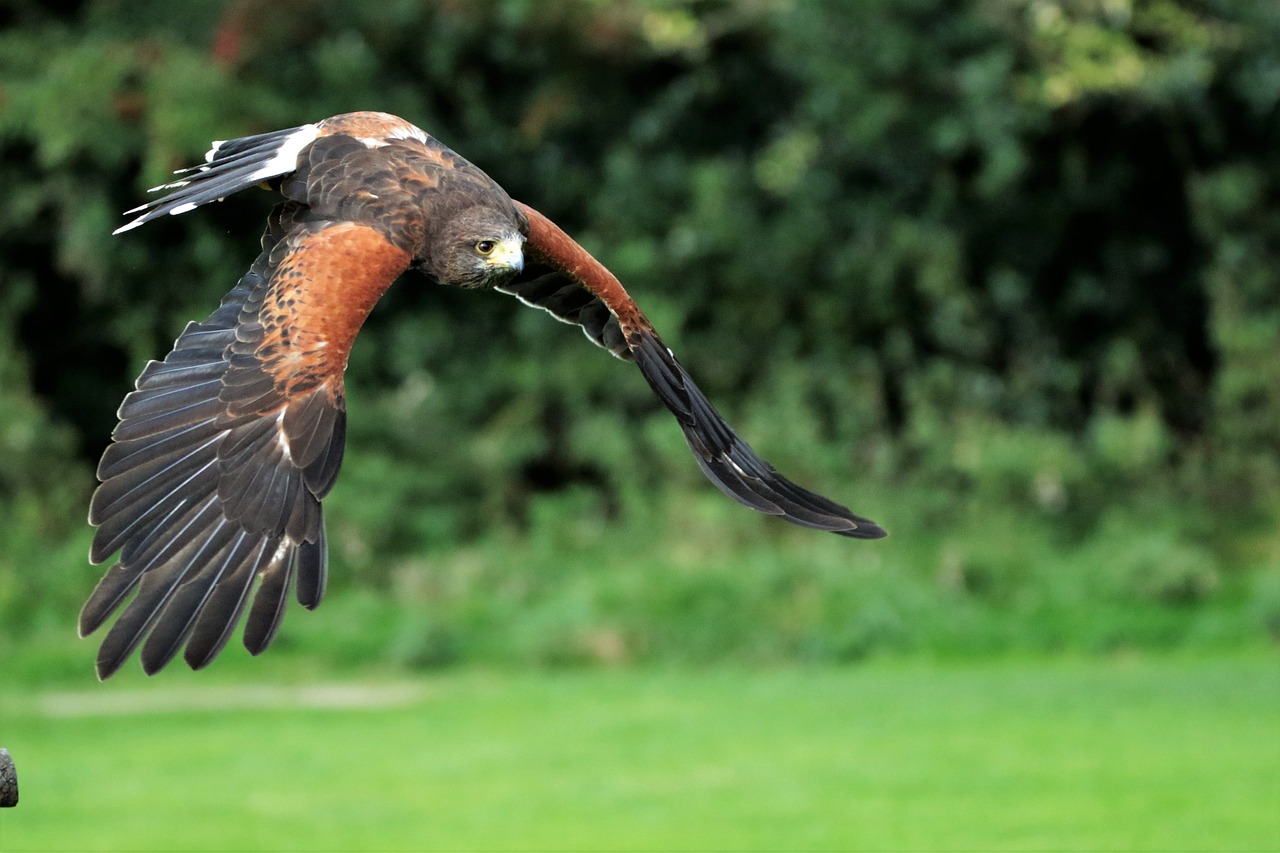Despite being predominantly active during the day, Harris Hawks do not exhibit nocturnal behavior. They follow daily patterns and rest at night, conserving energy for daytime activities. While they rest at night, they are known to engage in opportunistic hunting if needed. Although they rely on daylight for most of their hunting, they can adjust techniques to hunt in darkness if necessary. My experience has taught me that Harris Hawks are highly adaptable and opportunistic hunters. Let me explain further with the content below, which will explain their diurnal patterns.
Harris Hawks Activity Patterns
During the day, Harris hawks are known to be highly active hunters, utilizing their keen eyesight and cooperative hunting strategies. Their sleeping habits are primarily nocturnal, with the birds resting at night to conserve energy for their daytime activities. Their foraging techniques are impressive as they work to flush out prey from hiding spots and coordinate their attacks. Harris hawks are also territorial birds, fiercely defending their nesting sites and hunting grounds from intruders. When it comes to communication signals, they use a variety of vocalizations and body language to coordinate their hunting efforts and maintain social bonds within their group. Understanding these activity patterns is crucial in appreciating Harris hawks’ unique behaviors and characteristics.

Daytime Vs. Nighttime Behavior
Harris hawks exhibit a shift in behavior at night compared to their daytime activities, displaying distinct patterns that reflect their nocturnal nature. When the sun sets, these fascinating birds of prey undergo noticeable changes in various aspects of their behavior:
- Sleep Patterns: Harris hawks are diurnal, meaning they are active during the day, so their nighttime behavior includes periods of rest and sleep to recharge for the next day.
- Foraging Habits: While they primarily hunt during the day, Harris hawks may engage in opportunistic hunting at night if the need arises, especially in areas with abundant prey.
- Social Interactions: These birds are known for their social nature, and at night, they may roost together in groups to maintain warmth and security.
- Energy Levels: Harris hawks tend to conserve energy during the night, staying relatively inactive compared to their daytime hunting and flying activities.
During the night, Harris hawks adapt their behaviors to suit the challenges and opportunities presented in the darkness, showcasing their versatility in different environments.
Do Harris Hawks hunt at night?
As the sun sets and darkness descends, the hunting behaviors of Harris hawks undergo a notable shift, raising the question of whether these diurnal birds actively hunt at night. Harris hawks, primarily diurnal hunters, do exhibit some nighttime hunting behaviors. They rely on moonlight and keen eyesight to hunt in the dark. Their nighttime hunting tactics involve using the moonlight to their advantage, enabling them to detect movement and locate prey more effectively. While their diurnal prey preferences remain dominant, Harris hawks may also target nocturnal animals such as rodents, insects, and small mammals during nighttime hunting expeditions.
Moonlight hunting strategies play a crucial role in aiding Harris hawks during their nocturnal pursuits. These birds adjust their hunting techniques to rely more heavily on sound and airflow detection in the dark. Despite these adaptations, their night-hunting success rates are generally lower than their daytime hunts. The challenges of prey detection in darkness make nighttime hunting a less preferred option for Harris hawks, emphasizing their diurnal nature.
In conclusion, Harris hawks are diurnal birds of prey, meaning they are active during the day and rest at night. While they may hunt at dawn or dusk, they are not considered nocturnal. Their excellent vision and hunting skills make them successful daytime hunters. However, they do exhibit some nighttime hunting behaviors if the need arises.?

